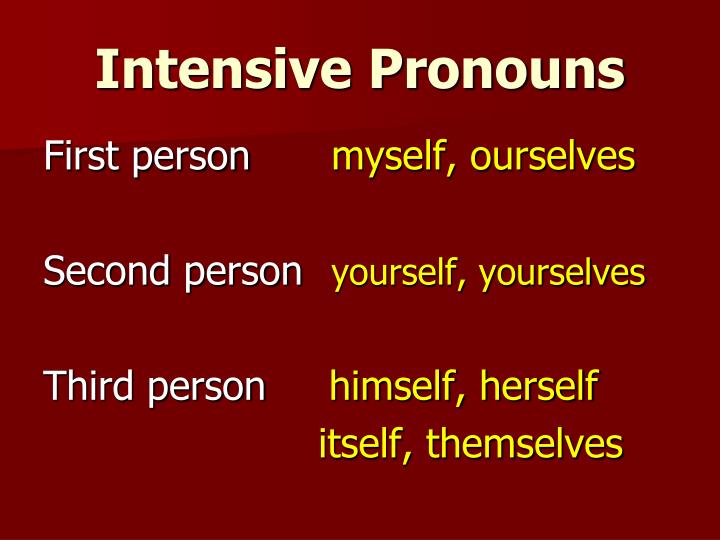

An intensive pronoun often immediately follows the noun or pronoun it refers to, but this isn’t always the case. By using an intensive pronoun, the sentence highlights how unexpected it is that a detective who is supposedly investigating a crime is actually the criminal.

The pronoun himself refers back to the subject the detective in order to add emphasis. For example, the pronoun himself is an intensive pronoun in the sentence The detective himself was the culprit. What is an intensive pronoun?Īn intensive pronoun is a pronoun that refers back to the subject of a sentence in order to emphasize it. Why? Intensive pronouns are what you need if you really want to add a little bit of surprise to your sentences, as they imply something out of the ordinary has happened. Wow! Unbelievable! How unexpected! The speaker sounds excited. However, we can call up an intensive pronoun and say Santa Claus himself appeared in front of the children. But what if we want to make our sentences more … intense? For example, we could say Santa Claus attended the holiday party. Often, we replace nouns with pronouns in order to make our sentences shorter or less repetitive. Nouns are one of the major parts of speech that we use in our sentences.


 0 kommentar(er)
0 kommentar(er)
